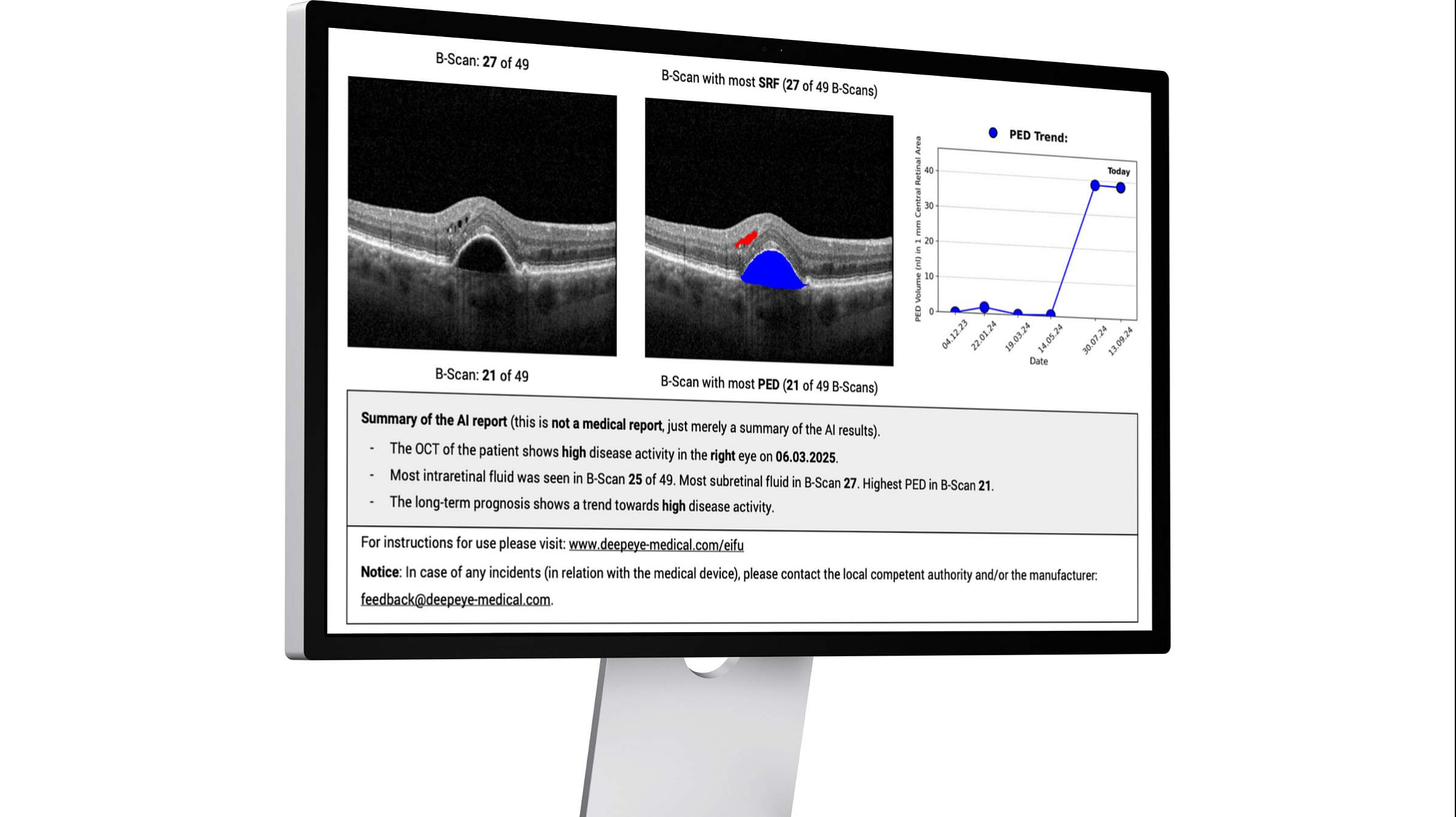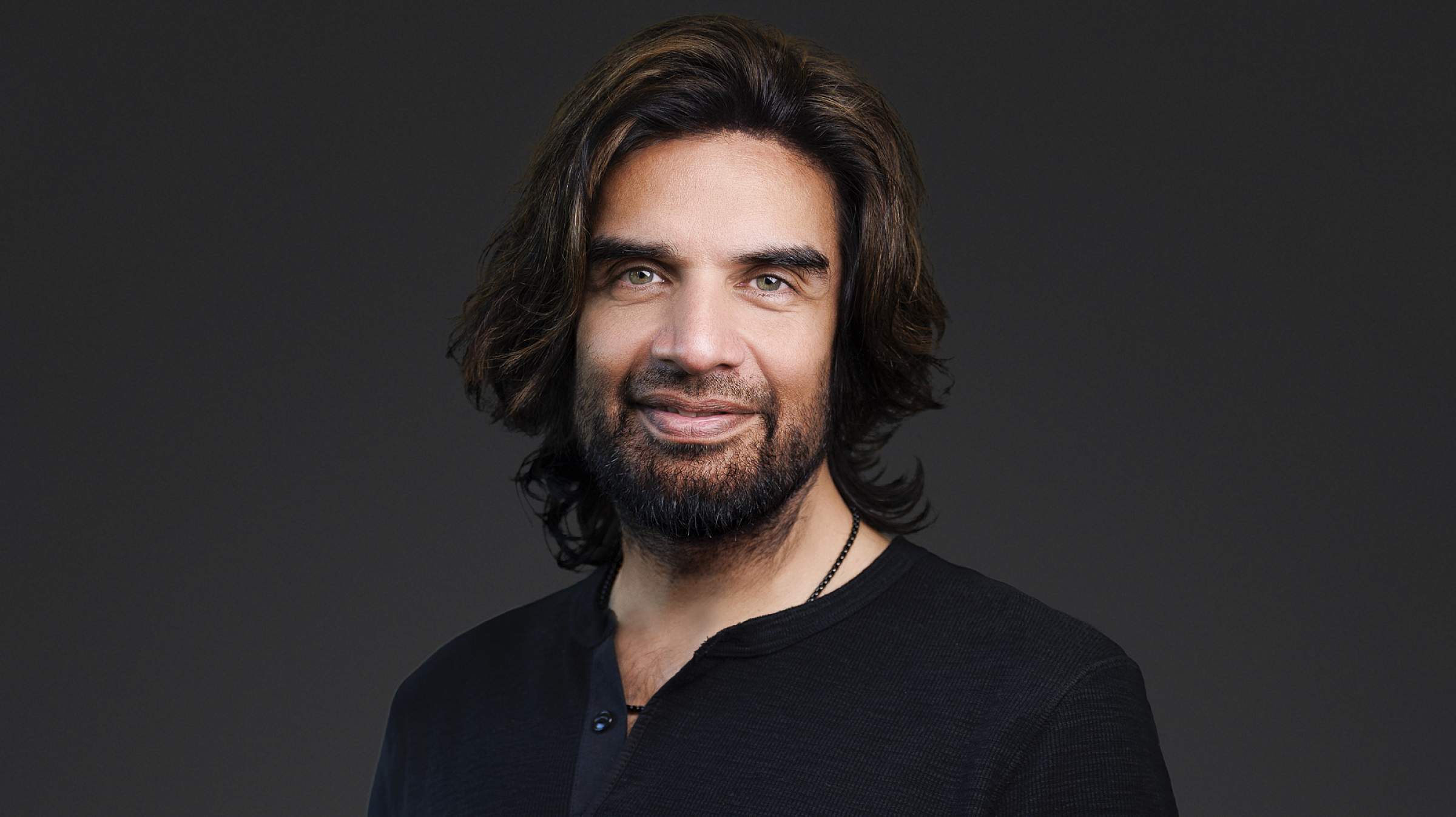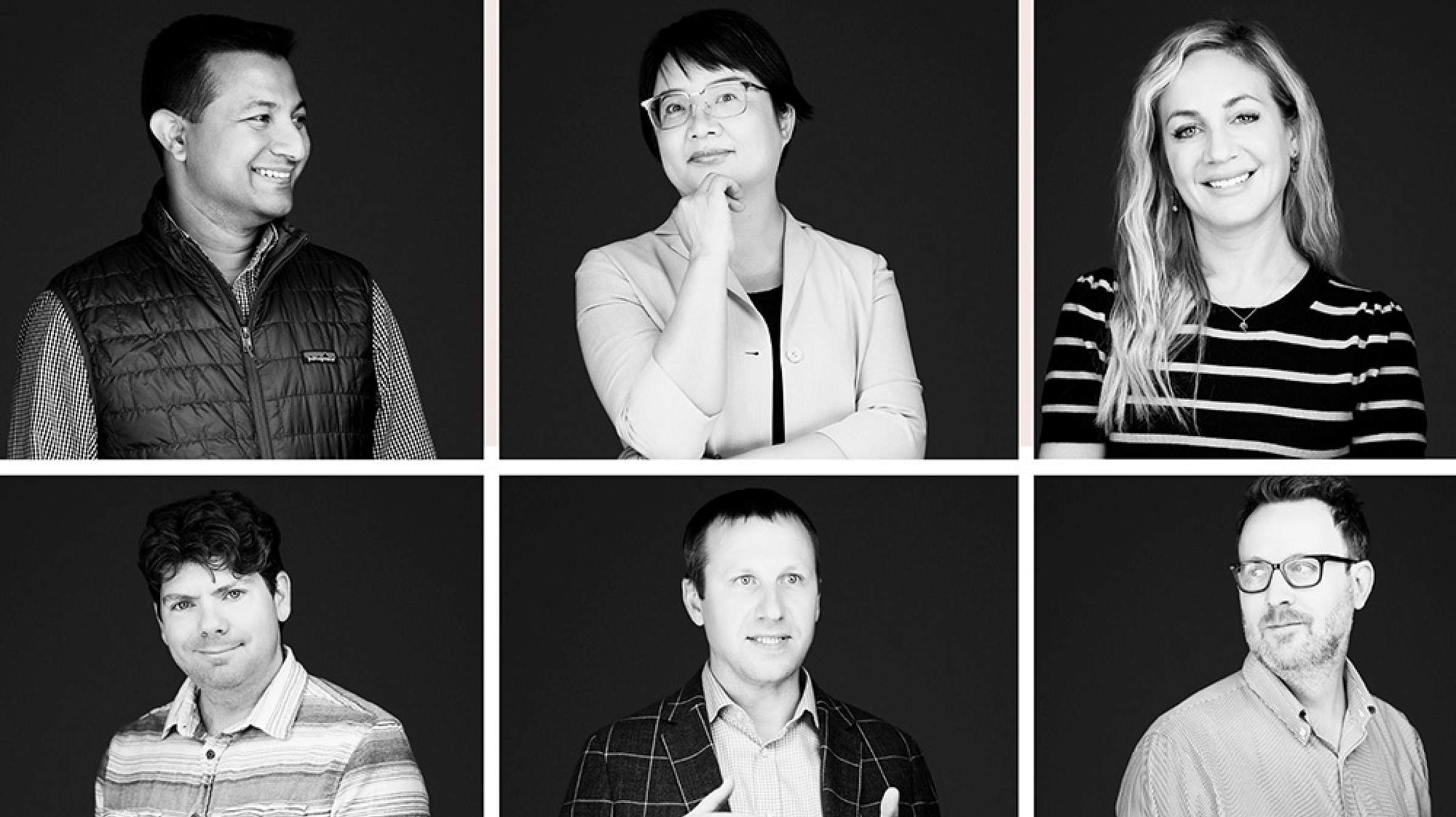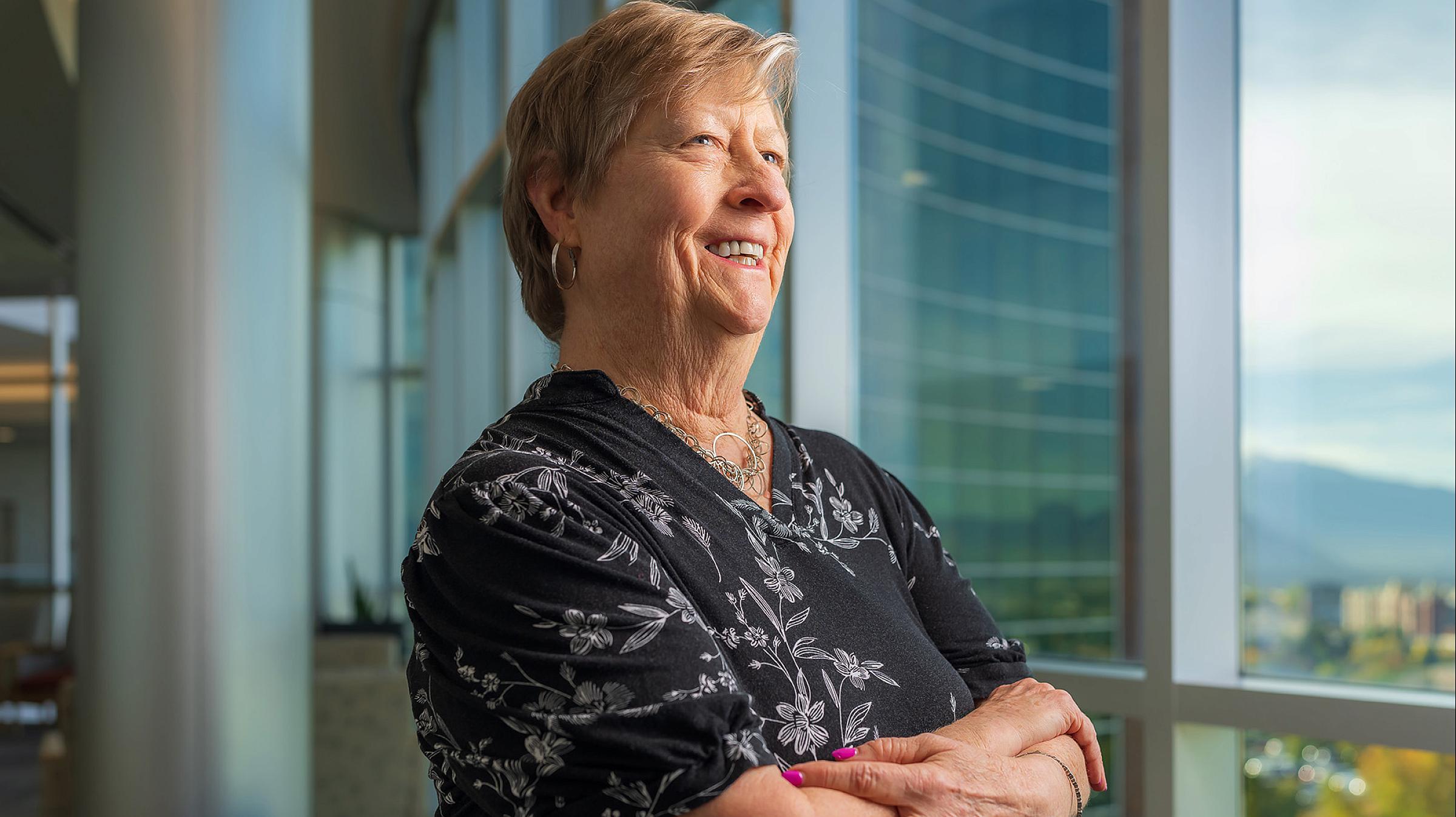
About Our Research
The John A. Moran Eye Center at the University of Utah supports more than 20 research labs and centers, where internationally awarded faculty, including one of the top retinal teams, are developing tomorrow's treatments. The Moran Eye Center has ranked as high as seventh in the U.S. for National Institutes of Health funding.
Research Centers
Moran invests in the full spectrum of research, supporting basic research that adds to our foundation of knowledge and then providing the tools to translate discoveries into new therapies and treatments. Among the work of our renowned-research centers:
Intermountain Ocular Research Center
Physicians and companies worldwide use the Intermountain Ocular Research Center to vet artificial lenses used for cataract surgery.
Steele Center for Translational Medicine
The SCTM is fast-tracking new therapies for age-related macular degeneration (AMD), using the world’s largest repository of donor eye tissue of its kind and data from an ongoing clinical study.
Utah Retinal Reading Center
UREAD seeks to contribute to the characterization of manifestation and progression of ophthalmic diseases, focusing on evaluating treatment response to innovative therapeutic strategies.
Crandall Center for Glaucoma Innovation
The Alan S. Crandall Center for Glaucoma Innovation is leading the way to better diagnostics, safer and more effective therapies and surgical devices, a deeper understanding of glaucoma and its genetics, and expanded access to care.
Faculty Laboratories
Moran has more than 30 faculty researchers addressing a number of conditions including glaucoma, age-related macular degeneration, Stargardt disease, optic neuritis, retinal stroke, idiopathic intracranial hypertension, Usher syndrome, and retinopathy of prematurity.
Angelucci Laboratory
Dr. Alessandra Angelucci's research focuses on identifying neuronal circuits that underlie functional properties of neurons in the visual cerebral cortex and, ultimately, visual perception.
Asare Laboratory
Dr. Afua Oteng Asare's research focuses on pediatric vision health; health services and systems research; health equity and disparities; cost effectiveness analysis; and implementation science.
Bernstein Laboratory
Dr. Paul S. Bernstein’s laboratory explores the biochemistry and biophysics of nutritional interventions against inherited and acquired ocular disorders.
Conrady Laboratory
The laboratory of Christopher D. Conrady, MD, PhD, focuses on inflammatory eye diseases, with a particular emphasis on herpes virus infections that can cause severe vision loss.
Davis Laboratory
The laboratory of Zachary W. Davis, PhD, is primarily interested in cortical mechanisms of visual perception and how these mechanisms are altered by damage or disease in the visual system.
Dubis Laboratory
Adam M. Dubis, PhD, focuses on explaining biological processes using data science and population health methods of large dataset acquisition, curation, and modeling.
Fleckenstein Laboratory
Dr. Monika Fleckenstein's primary research interest centers around degenerative retinal diseases, with a focus on age-related macular degeneration.
Hwang Laboratory
Eileen Hwang, MD, PhD, studies how the biochemistry and extracellular matrix structure of the vitreous changes throughout life from childhood through old age.
Krizaj Laboratory
The lab of David Krizaj, PhD, is focused on studies of ocular mechanotransduction, with emphasis on how intraocular pressure is generated and regulated, and why sensitivity to mechanical stress kills neurons in the retina.
McDonnell Laboratory
Dr. Fiona McDonnell's primary research area is the study of glaucoma, with a special focus in conventional outflow physiology.
Noudoost Laboratory
Dr. Behrad Noudoost’s lab research is focused precisely on understanding the neural circuits and biological mechanisms that are necessary and sufficient to drive fundamental cognitive functions.
Olson Pettey Cataract Research Lab
Directed by Jeff Pettey, MD, MBA, the lab focuses on enhancing the safety and efficiency of cataract surgery by studying phacodynamics, surgical systems, and improving care delivery.
Pitha Laboratory
Dr. Ian F. Pitha's research focuses on the role of scleral cells, or the white of the eye, in glaucoma, and improving care for glaucoma patients by designing more effective and safe therapeutics.
Roy Laboratory
Suva Roy,PhD, focuses on understanding the functions of retinal cell types in the context of natural vision and visual disorders.
Stagg Laboratory
Brian C. Stagg, MD, focuses on improving the outcomes of glaucoma patients by using clinical decision-support systems to ensure they receive appropriate care.
Yang Laboratory
Dr. Jun Yang’s laboratory research focuses on the disease mechanisms and therapeutic treatments, including gene therapies, for retinal degenerative diseases.
Zhu Laboratory
Dr. Weiquan Zhu's lab investigates the critical role of vascular dysfunction in the onset and progression of inflammatory diseases and aging, particularly within the central nervous system, including the retina.
Speaker Series and Seminars
The Ophthalmology & Visual Sciences Distinguished Seminar Series and Vision Interest Group Seminars are held in the John A. Moran Eye Center Auditorium. For more information, contact Paula King at u6063943@utah.edu or 801-585-7020. Check back soon for the 2026 schedule.
News from Moran Researchers
Cornea-On-A-Chip Device Offers Potential New Treatments
Researchers at the John and Marcia Price College of Engineering and the John A. Moran Eye Center have made a discovery about keratoconus and other ectatic eye diseases that changes our understanding of them.
Moran Patient First in Region to Get New MacTel Treatment
Retinal clinician-scientist Paul S. Bernstein, MD, PhD, leads care and research into the rare eye disease known as Macular Telangiectasia Type 2 at Moran as part of an international initiative.
Researcher Helps Create Novel AI Tool for Eye Care
Moran Eye Center researcher Adam Dubis, PhD, is contributing to an AI algorithm that assists ophthalmologists treating so-called “wet” or neovascular age-related macular degeneration (AMD).
Study Shows Promise for Eye Surgery Robot Invention
Researchers at the University of Utah’s Moran Eye Center and College of Engineering have collaborated to create a new robotic surgery device that aims to give surgeons “superhuman” hands.
Glaucoma Q&A: Catching up with Dr. Ike Ahmed
Surgeon-scientist Iqbal Ike K. Ahmed, MD, FRCSC, directs the Alan S. Crandall Center for Glaucoma Innovation and is a globally recognized leader in the field.
Engineering the Future of Vision Research
Moran has added research faculty members who use advanced methods to explore promising areas of investigation.
Analysis Supports Further Testing of Eye Drops Hoped to Reverse Cataracts
A new analysis of research conducted at the John A. Moran Eye Center supports further testing to determine if cataracts might someday be reversed with eye drops.
Meet the First Patient to Test Moran's AMD Gene Therapy in Utah
A Moran Eye Center age-related macular degeneration (AMD) patient recently became the first in Utah to test a new gene therapy developed by the Sharon Eccles Steele Center for Translational Medicine.
Read More About Our Research

Clinician-scientists at the John A. Moran Eye Center offer their latest studies and perspectives in this latest edition of Clinical Focus.
Contact Us
University of Utah School of Medicine
Department of Ophthalmology & Visual Sciences
John A. Moran Eye Center
65 Mario Capecchi Drive
Salt Lake City, UT 84132
Phone: 801-585-3723
Paul S. Bernstein, MD, PhD, Vice Chair of Research
Phone: 801-581-4069
paul.bernstein@hsc.utah.edu
Sydney Gee, Associate Director of Research
Phone: 801-581-3560
sydney.gee@hsc.utah.edu
Julee LaMothe, Research Dev. Sr. Manager
Phone: 801-585-3723
julee.lamothe@hsc.utah.edu







